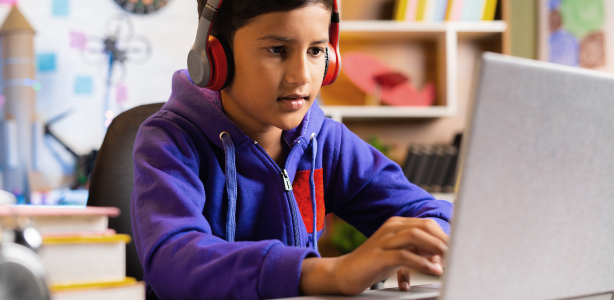 Confession time. I’m a mom that is part of the problem. The problem of posting photos of my kids online without asking for their permission and knowing deep down that I’m so excited about sharing, I’m not paying much attention at all to the risks.
Confession time. I’m a mom that is part of the problem. The problem of posting photos of my kids online without asking for their permission and knowing deep down that I’m so excited about sharing, I’m not paying much attention at all to the risks.
Why do I do it? Because I’m madly in love with my two wee ones (who aren’t so wee anymore). Because I’m a proud parent who wants to celebrate their milestones in a way that feels meaningful in our digital world. And, if I’m honest, I think posting pictures of my kids publically helps fill up their love tank and remind them they are cherished and that they matter. . . even if the way I’m communicating happens to be very public.
Am I that different than most parents? According to a recent McAfee survey, I’m in the majority.
Theoretically, I represent one of the 1,000 interviewed for McAfee’s recent Age of Consent survey* that rendered some interesting results.
Can you relate?
- 30% of parents post a photo of their child to social media daily.
- 58% of parents do not ask for permission from their children before posting images of them on social media.
- 22% think that their child is too young to provide permission; 19% claim that it’s their own choice, not their child’s choice.
The surprising part:
- 71% of parents who share images of their kids online agree that the images could end up in the wrong hands.
- Parents’ biggest concerns with sharing photos online include pedophilia (49%), stalking (48%), and kidnapping (45%).
- Other risks of sharing photos online may also be other children seeing the image and engaging in cyberbullying (31%), their child feeling embarrassed (30%), and their child feeling worried or anxious (23%).
If this mere sampling of 1,000 parents (myself included) represents the sharing attitudes of even a fraction of the people who use Facebook (estimated to be one billion globally), then rethinking the way in which we share photos isn’t a bad idea.
We know that asking parents, grandparents, friends, and kids themselves to stop uploading photos altogether would be about as practical as asking the entire state of Texas to line up and do the hokey pokey. It’s not going to happen, nor does it have to.
But we can dilute the risks of photo sharing. Together, we can agree to post smarter, to pause a little longer. We can look out for one another’s privacy, and share in ways that keep us all safe.
Ways to help minimize photo sharing risks:
- Pause before uploading. That photo of your child is awesome but have you stopped to analyze it? Ask yourself: Is there anything in this photo that could be used as an identifier? Have I inadvertently given away personal information such as a birthdate, a visible home addresses, a school uniform, financial details, or potential passwords? Is the photo I’m about to upload something I’d be okay with a stranger seeing?

- Review your privacy settings. It’s easy to forget that when we upload a photo, we lose complete control over who will see, modify, and share that photo again (anywhere they choose and in any way they choose). You can minimize the scope of your audience to only trusted friends and family by customizing your privacy settings within each social network. Platforms like Facebook and Instagram have privacy settings that allow you to share posts (and account access) with select people. Use the controls available to boost your family privacy.
- Voice your sharing preferences with others. While it may be awkward, it’s okay (even admirable) to request friends and family to reign in or refrain from posting photos of your children online. This rule also applies to other people’s public comments about your vacation plans, new house, children’s names or birthdates, or any other content that gives away too much data. Don’t hesitate to promptly delete those comments by others and explain yourself in a private message if necessary.
- Turn off geotagging on photos. Did you know that the photo you upload has metadata assigned to it that can tell others your exact location? That’s right. Many social networks will tag a user’s location when that user uploads a photo. To make sure this doesn’t happen, simply turn off geotagging abilities on your phone. This precaution is particularly important when posting photos away from home.
- Be mindful of identity theft. Identity theft is no joke. Photos can reveal a lot about your lifestyle, your habits, and they can unintentionally give away your data. Consider using an identity theft protection solution like McAfee Identity Theft Protection that can help protect your identity and safeguard your personal information.
* McAfee commissioned OnePoll to conduct a survey of 1,000 parents of children ages one month to 16 years old in the U.S.













